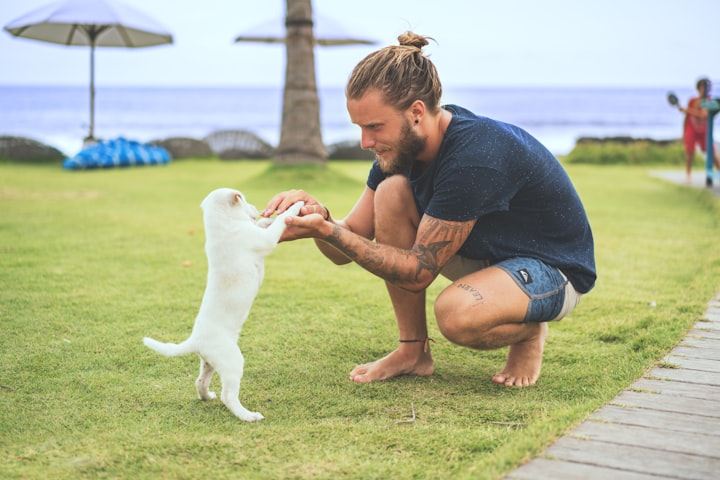How To Train Dogs (Basic Way)
Getting a new puppy is a fun and interesting time. You probably went to a breeder or pet store or maybe just saw an ad on the Internet or the newspaper, for puppies, and decided just to check it out. Before you knew it those little eyes and fluffy puppy fur had your heart melting and you were headed home with him or her in your arms.

Bringing home a new puppy is an exciting and joyous experience, but it also comes with a great deal of responsibility. One of the most important things you will need to do as a new puppy owner is train your pup. Proper training is essential to ensure your furry friend is well-behaved and knows how to interact with people and other animals. In this blog post, we will discuss some tips on how to train your puppy in a basic way, in 600 words or less.
Start with the Basics
The first step in training your puppy is to start with the basics. This includes teaching your puppy basic commands like sit, stay, come, and heel. These commands will be the foundation for more advanced training later on. It is important to start with one command at a time and be consistent in your training.
When teaching your puppy basic commands, use positive reinforcement. Positive reinforcement is a technique used to reward good behavior. When your puppy performs the desired behavior, reward them with treats or verbal praise. Positive reinforcement helps your puppy associate good behavior with positive outcomes, making them more likely to repeat that behavior in the future.
Consistency is Key
Consistency is crucial in puppy training. Make sure everyone in the household is using the same commands and techniques when training the puppy. This will avoid confusion and make it easier for your puppy to understand what is expected of them. When training your puppy, keep in mind that dogs thrive on routine. Try to keep training sessions consistent by doing them at the same time each day and in the same location.
Potty Training
Potty training is one of the most important things you will teach your puppy. It requires patience, consistency, and positive reinforcement. Start by taking your puppy outside every few hours and after meals, playtime, and naps. When your puppy goes potty outside, reward them with treats or verbal praise. This positive reinforcement will help your puppy associate going potty outside with positive outcomes.
If your puppy has an accident inside, do not punish them. Instead, take them outside immediately and praise them when they go potty outside. Punishing your puppy for accidents can cause them to become anxious or fearful, which can make potty training more difficult.
Socialization
Socialization is an essential part of puppy training. It helps your puppy learn how to interact with other dogs and people. Take your puppy to socialization classes or to the park to meet other dogs and people. This will help your puppy become more comfortable in different situations and develop better social skills.
When socializing your puppy, it is important to be cautious. Not all dogs are friendly, and it is important to watch your puppy closely to make sure they are not overwhelmed or frightened. If your puppy seems scared or uncomfortable, remove them from the situation and try again at a later time.
Training Takes Time
Remember, training takes time. Be patient and consistent with your training, and don't expect your puppy to learn everything overnight. It is essential to be consistent with your training, and to work on one command at a time. Keep your training sessions short and fun, and always end on a positive note.
Train your puppy now in easy ways. Click this link.
Training your puppy is an essential part of being a responsible pet owner. Basic training is essential to ensure your puppy is well-behaved and knows how to interact with people and other animals. Remember to start with the basics, use positive reinforcement, be consistent, and give your puppy plenty of time to learn. With patience, consistency, and positive reinforcement, you'll be able to train your puppy to be a well-behaved and happy member of your family.





Comments
There are no comments for this story
Be the first to respond and start the conversation.